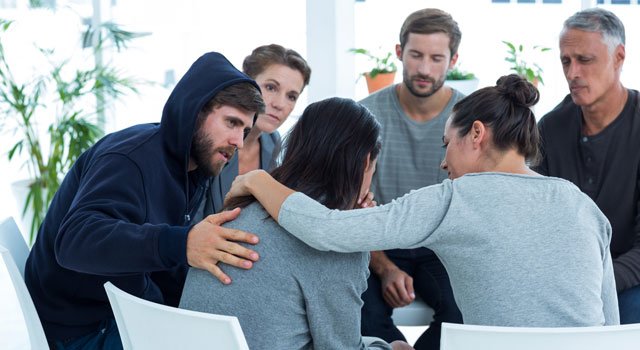How do you cure the drinking problem for good? Is there hope for someone who has tried quitting but has ended up relapsing? The only one who can answer that is YOU. No matter how many inspirational materials you can get your hands on, your research would be useless if you don’t irresolutely start getting your act together.
Here’s a practical and highly effective guide to some self-help treatments that will get your recovery underway:
 Start by making a pact with yourself
Start by making a pact with yourself

It’s easier said than done because it’s not an “I’ll-sleep-on-it-tonight” action. First, you have to admit that you have a problem. Second, like any problem that should have a solution, you have to condition yourself gradually to bury the addiction. How? By making an honest-to-goodness list of the benefits of not drinking vs. drinking. Compare both points, and you’ll realize that the cost of drinking outweighs the benefits. However, if you deliberately try to lengthen the list to justify your addiction, then sooner or later, the problem will still catch up with you until it’s payback time.
 Have goals and share them with close friends and family
Have goals and share them with close friends and family

They say that you have to write a goal to attain it. Otherwise, it just remains a dream. Therefore, set a target with milestones and have someone monitor your progress with you. It’s important that you have a schedule — say if the plan is to wean yourself until you’re completely alcohol- free. Reward yourself along the way but not by anything that has to do with drinking. And to keep you stay focused, stay away from temptations and be brave enough to go on should you have a momentary relapse.
 Seek medical help if necessary
Seek medical help if necessary
Depending on the level of your condition or the mental and physical effects that too much drinking has had on you, you may turn to the medical authorities for support and proper care. For severe cases, the withdrawal syndrome brings a lot of physical and mental symptoms that can adversely affect the body. Hence, don’t be ashamed nor afraid to consult and be treated.
 Begin your treatment
Begin your treatment

Let’s say you have already gotten medical care for any withdrawal symptom you might have. It’s now time to seek the help of mental health experts who can sufficiently guide you through the process. There are many programs and interventions to help speed up your recovery. You need to know which of them would work well for you.
 Give yourself a new meaning to live
Give yourself a new meaning to live
Your body deserves to be healthy for you to live a longer and happier life. Once you’ve committed to travel the path of recovery, think of it as a long and one-way street with no turns allowed. Develop new activities and hobbies, eat a balanced diet and exercise regularly. Be willing to participate in support groups actively and acknowledge the value of you being there, not just to help yourself recover fully, but to also be there for others who are just starting their journey to recovery.
Yes, there’s a big chance of recovering from almost anything, if you admit to yourself that there is a problem and that the solution depends entirely on you.




